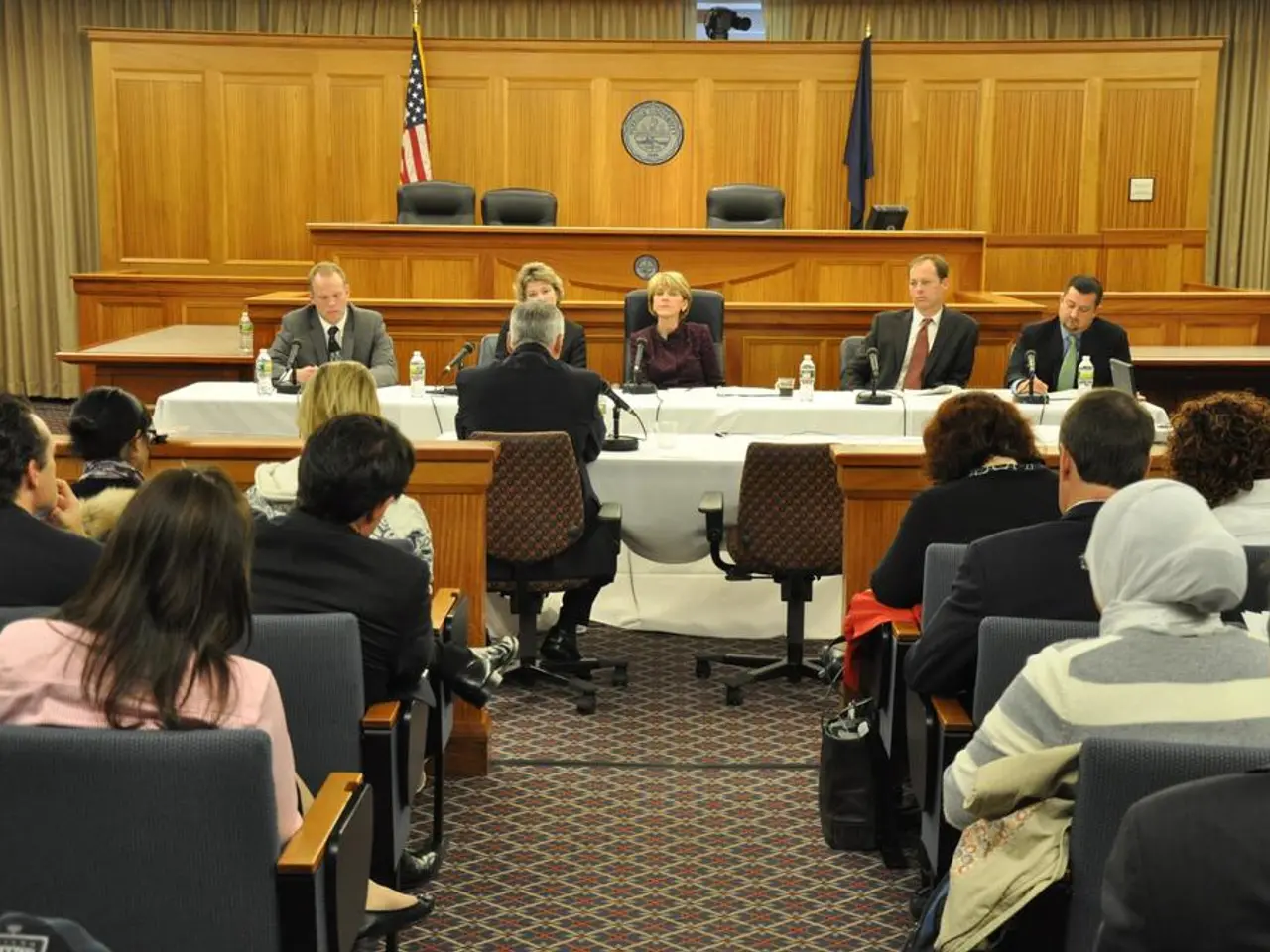Donald Trump's Tariffs Pose Threat to U.S. Economy, According to Fed
Federal Reserve's Decision Clouded by Trump's Trade Taxes - U.S. President Trump's Trade Tariffs Gain Spotlight Over Federal Reserve Decisions
Let's chat about the elephant in the room - Donald Trump's tariffs and their potential impact on the U.S. economy. The cat's outta the bag, and the U.S. Federal Reserve (Fed) is giving it some serious thought as they strive to keep inflation in check and maintain a stable labor market. But here's the tricky part: the Fed's got a bone to pick with Trump as they foresee two clear consequences of his tariffs - rising prices and sluggish growth.
Enter Jerome Powell, Fed chairman, who's been making it crystal clear: "You don't need a Ph.D. in economics to know tariffs equals inflation." He warns consumers will feel the heat too.
Powell Speaks:
"The impact of tariffs depends on their level. However, lower tariffs are on the horizon, and we're looking at a potential rise in inflation in the coming months," said Powell. Bigger tariffs? You guessed it! They'll send prices skyrocketing and weigh down economic growth.
The U.S. Federal Reserve hasn't changed its interest rate - despite Trump's rampant demands to lower it pronto. The rate? It's lingerin' comfortably in the range of 4.25 to 4.5 percent, which ain't exactly low-bo. The reason? High economic uncertainty, plain and simple.
The Interest Rate Game
The Fed's interest rate is the central bank's main control mechanism. It determines the rate at which banks can borrow from the Fed, and in return, it influences consumer and business fees, like the cost of mortgages, car loans, and other financing.
Low economic growth, you ask? Yep, the Fed now predicts a growth rate of 1.4 percent, down from earlier expectations of 1.7 percent. They're also anticipating a higher inflation rate of 3.0 percent compared to their March prediction of 2.7 percent.
Why the Tariff Tantrum?
The Federal Reserve's independence may be guaranteed by law, but it doesn't stop Trump from repeatedly hollerin' for lower interest rates to prop up the economy. To drive his point home, he's got a bad habit of publicly dissing Jerome Powell. Just last week, he called him a "fool." And just before the Fed decision, he labeled him "stupid." He sometimes even suggests the Fed should copy the European Central Bank's (ECB) interest rate cuts, ’cause let's face it, everyone loves a bargain, right?
In the Fed's eyes, the interest rate? It ain't broken, and there's no need to fix it. Inflation's close to the target of two percent, and the labor market remains strong. Plus, with all the tariff uncertainty, it's hard to predict the future economic landscape.
Since Trump took office in 2017, he's slapped on and threatened high import tariffs on goods from various countries. As a result, imports to the U.S. have become pricey.
- Donald Trump
- Federal Reserve
- Tariffs
- Jerome Powell
- Inflation
- Central Bank
- US Economy
- United States
- Labor Market
- Federal Reserve System
- Republican
- Interest Rate
Insights:
The Fed foresees Donald Trump's tariffs causing inflation through increased consumer prices (an estimated 0.2 percentage point increase) and slowing economic growth (a projected 0.3 percentage point decrease in real GDP growth, bringing the annual growth forecast down to around 1.6 percent for 2025). Moreover, tariffs affect supply chains, reduce production efficiency, trigger retaliatory tariffs from other countries, and increase trade policy uncertainty, all of which negatively impact capital spending, export growth, and overall economic activity[1][2]. The tariffs' impact on both inflation and economic expansion complicates monetary policy decisions[3].
- The U.S. Federal Reserve, led by Jerome Powell, is concerned about Donald Trump's tariffs and their potential impact on inflation and economic growth.
- According to Powell, the impact of tariffs depends on their level, with lower tariffs potentially leading to a rise in inflation over the coming months, while higher tariffs could cause prices to skyrocket and slow economic growth.
- Despite pressure from Donald Trump to lower interest rates, the Federal Reserve has kept the rate within the range of 4.25 to 4.5 percent due to high economic uncertainty.
- The Fed's interest rate is a crucial control mechanism, influencing consumer and business fees like mortgages, car loans, and other financing, but its independence is challenged by Trump's frequent calls for lower rates and criticisms of Powell.







